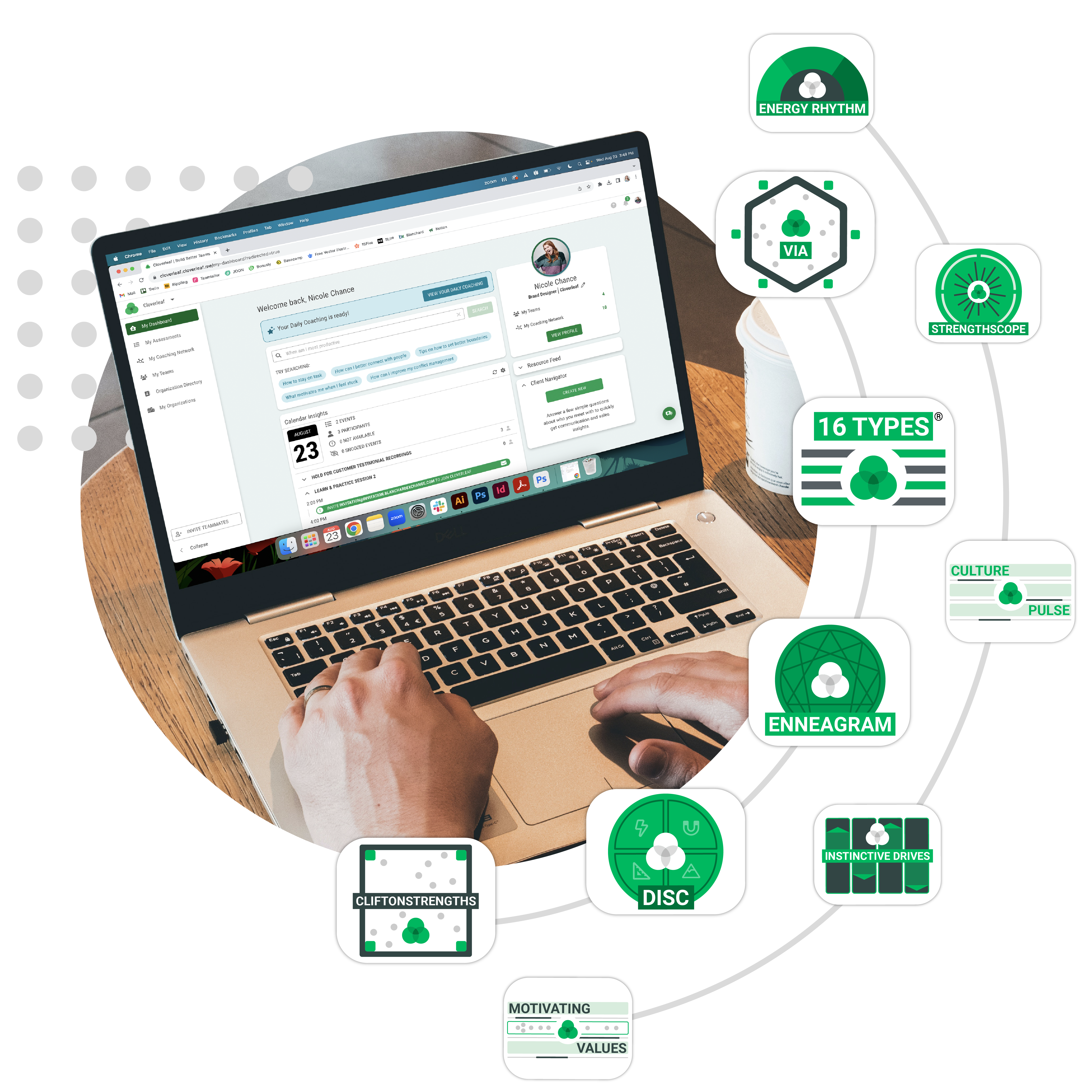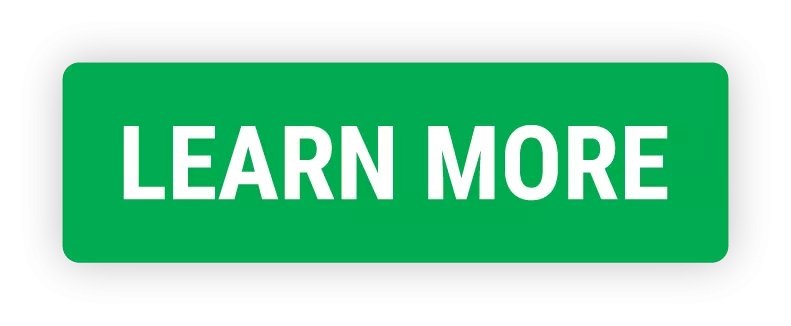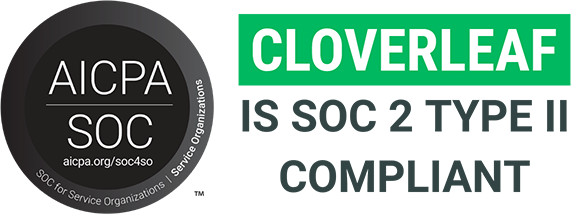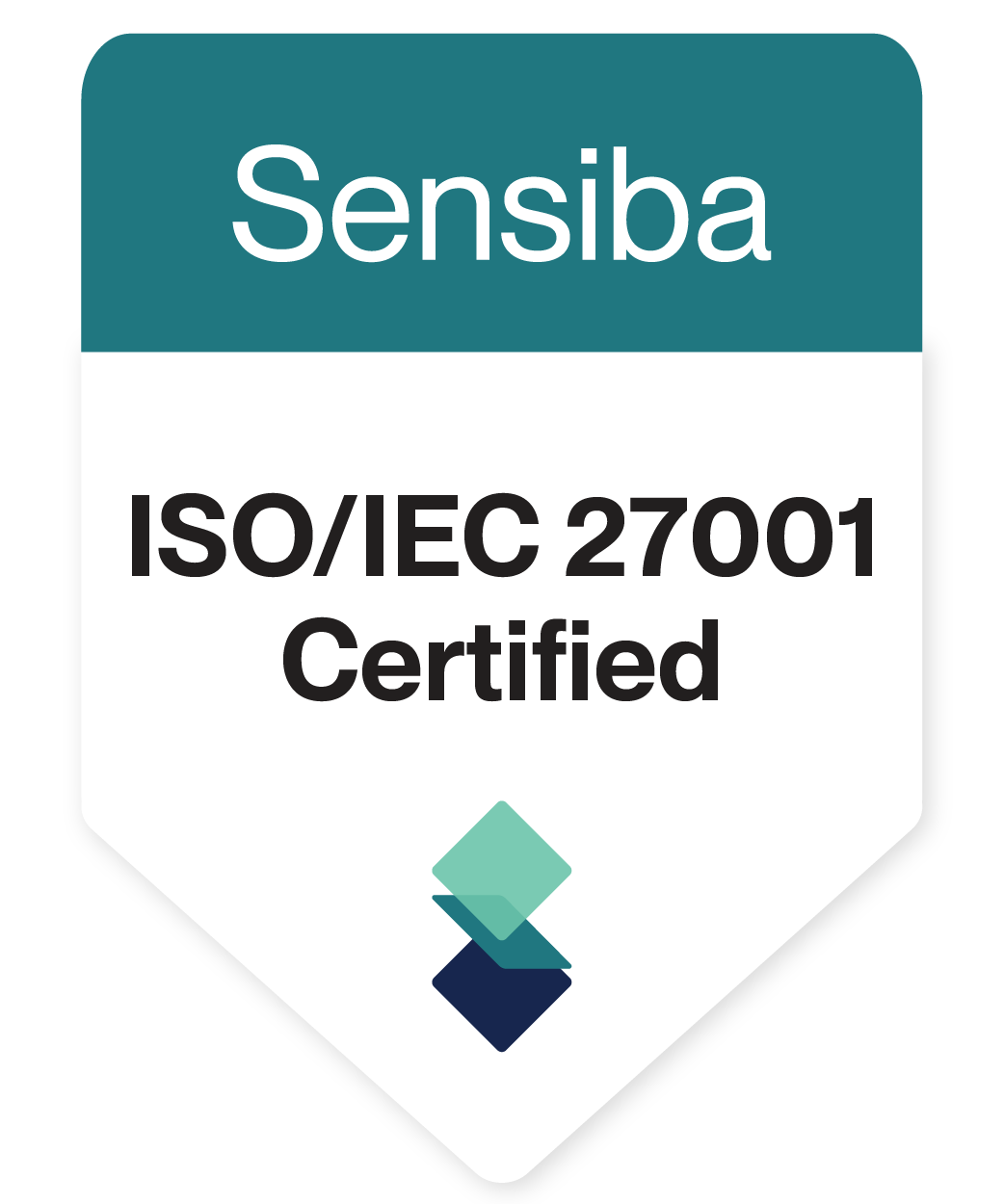What Is Self-Awareness In The Workplace?
Self-awareness in the workplace is about tuning into your emotions, strengths, and behaviors and understanding their impact on others. It’s a practical skill that boosts communication, decision-making, and teamwork. Knowing your values and behavioral patterns can help contribute to a more effective, collaborative, and positive work environment. A high level of self-awareness allows leaders to be authentic, which, in turn, fosters trust within teams. A leader who is genuine, unafraid to admit mistakes, and humble enough to leverage the team’s collective strengths is likely to create an environment of openness and collaboration. This sense of authenticity inspires reciprocity. When a leader is authentic, team members feel more comfortable being authentic. What about individual contributors, though? The role of self-understanding doesn’t diminish when we shift our focus from individual contributors might argue it becomes even more crucial. Self-awareness in these roles equates to understanding one’s own strengths and weaknesses, recognizing triggers, and being aware of the effects one’s actions can have on the work environment.Key Takeaways:
- Self-awareness has evolved into a business imperative that influences productivity, job satisfaction, and the bottom line, transcending its psychological roots.
- Leaders play a pivotal role in fostering self-awareness, setting the tone for organizational culture and employee engagement by embodying self-knowledge and authenticity.
- Assessments and tools can help foster self-awareness in the workplace, enhancing understanding of individual strengths, weaknesses, and work styles.
- The cultivation of self-awareness at all levels of an organization can enhance individual performance, agile leadership, and, ultimately, the organization’s bottom line.

4 Challenges to Self-Awareness in the Workplace
Promoting self-awareness can be a complex process. One such challenge lies in the cultural fabric of the organization itself. An organization’s culture can either nourish personal growth or squash it.
A culture promoting learning and openness encourages employees to understand their personal strengths, recognize their weaknesses, and work on their professional development. Such a culture facilitates employees to be more conscious of their own actions and behavior to create stronger relationships within the team.
Leaders who want to promote self-understanding within an organization often face hurdles. These roadblocks can hinder the growth of individuals if the culture is adverse to change.
To navigate these challenges, it is essential to understand and acknowledge them first:
1. Organization Culture: An environment that encourages silos and secrecy will hinder self-reflection. It inhibits the open exchange of ideas and feedback, which is essential for personal growth.
2. Unconscious Biases: These biases can color our perception of ourselves and others, thus skewing our understanding and preventing us from gaining a clear self-view.
3. Ego: Egos can often act as a barrier. They can prevent us from acknowledging our own emotions or shortcomings and accepting our areas of improvement.
4. Fear of Feedback: The fear of negative feedback or criticism can keep us from seeking the valuable insights we need for growth.
The role of leadership is pivotal in the process of promoting self-awareness. According to Gallup®, managers account for up to 70% of the variance in employee engagement.
Without leaders understanding their behavior and its impact on culture and business outcomes, the organization can become chaotic. A leader’s awareness helps set the stage for organizational health and an engaging employee experience.

Do You Want To Grow Self Awareness In Your Workplace?
- Make development available to each team member
- Personalize growth to individual strengths and needs
- Integrate learning so it is actually in the flow of work
- Scale human skills that accelerate teamwork
- Prove the ROI of your development programs

How To Ignite Self-Awareness In Employees
Promoting self-awareness in a corporate setting can seem like a daunting task. It always helps when an individual has an intrinsic motivation to elevate their emotional intelligence in the workplace.
In the book The Leadership Challenge, authors Kouzes, and Posner studied leadership across industries and cultures and identified five practices of exemplary leadership. The first practice is to “Model the Way.”
Great leaders promote self-awareness by exhibiting it. Organizations offer learning and development opportunities, career pathing, and an internal standard of being an effective leader in this workplace.
Let’s break this down and explore specific strategies that both leaders and individual contributors can adopt to foster self-awareness:
3 Tips For Leaders:
- Seek Feedback Regularly: Leaders should actively solicit feedback from their teams. This can help them understand how their actions and decisions are perceived, providing valuable insights for self-improvement.
- Practice Mindfulness: Being mindful and present in every interaction allows leaders to observe their behavior and its impact on others more effectively.
- Self-evaluation: Regular self-assessment can help identify areas of strength and improvement, contributing to a deeper understanding of oneself.
3 Tips For Individual Contributors:
- Seek Mentorship: A mentor can provide an external perspective, helping individuals better understand their strengths and weaknesses.
- Practice Active Listening: By understanding others’ perspectives, individuals can cultivate empathy and increase their awareness of others’ experiences and needs.
- Cultivate Empathy: Developing empathy can enhance understanding of others, promoting better teamwork and collaboration.
Everyone within the organization should be given opportunities to develop self-awareness skills. Leaders can facilitate this growth by empowering and supporting each team member. After all, a self-aware team can contribute significantly to a positive working environment, enhance collaboration, and ultimately drive organizational success.
How Can Self Awareness Be Applied In The Workplace?
Applying self-awareness in the workplace involves regularly reflecting on personal emotions, strengths, and behaviors and understanding their impact on team dynamics and decision-making. It’s about actively seeking feedback, being open to learning, and adjusting behaviors for better collaboration and communication.
Leaders can encourage self-awareness by creating an environment of trust and openness where employees feel safe to express themselves and learn from their experiences. This approach leads to a more empathetic, cohesive, and effective workplace, where everyone knows their contributions and impact on the team and organizational goals.
10 Ways To Apply Self-Awareness At Work
1. Tailor Communication: Use your self-awareness to adapt how you communicate. If you know you’re a direct communicator, you might soften your approach when dealing with more sensitive topics or colleagues who prefer a gentler communication style.
2. Manage Reactions: Knowing your triggers, you can better control your reactions. For instance, if tight deadlines stress you out, you can plan or communicate your concerns early.
3. Play to Your Strengths: Recognize what you’re good at and volunteer for tasks that align with your strengths. This not only boosts your confidence but also increases your efficiency and effectiveness.
4. Acknowledge Weaknesses in Team Settings: Openly acknowledge areas you’re working on in team discussions. This honesty fosters trust and encourages others to share, creating a supportive team environment.
5. Adjust to Others’ Work Styles: Understanding your preferences can help you better adapt to others’ styles. For example, you might compromise with a quick call if you prefer email, but a colleague likes face-to-face meetings.
6. Enhance Decision-Making: Use self-awareness to recognize biases in your decision-making process. This can help you make more balanced and fair decisions.
7. Set Realistic Goals: Knowing your capabilities helps set achievable goals. This avoids overcommitment and under-delivery, leading to more consistent performance.
8. Improve Conflict Resolution: Understanding your conflict style – whether you tend to avoid, want a competitive edge, or find ways to mediate – can help you navigate disagreements more effectively.
9. Seek Roles That Suit You: Use your self-awareness to guide your career path. Choose roles that align with your values, interests, and skills.
10. Foster a Positive Work Environment: By being aware of your mood and its impact on others, you can contribute to a positive, energizing work culture.

Leveraging Assessments And Tools For Greater Self-Awareness In The Workplace
Assessments and personal development tools play an indispensable role in fostering self-awareness in the workplace. These resources help individuals identify their strengths and weaknesses and provide insights into diverse work and communication styles.
Top Personality Tests For Employees
Utilizing personality assessments can help employees better understand their working styles, strengths, and areas for improvement to foster collaboration within the team. Here are the top five assessments that can significantly enhance performance in the workplace:
16 Types (MBTI): This tool helps identify personality types based on four dichotomies: Extraversion-Introversion, Sensing-Intuition, Thinking-Feeling, and Judging-Perceiving. Understanding these aspects can help individuals recognize their preferences in perceiving the world and making decisions.
DISC: DISC measures an individual’s Dominance, Influence, Steadiness, and Conscientiousness, helping teams understand their dynamic better and enabling more effective communication, feedback, and collaboration.
Enneagram: The Enneagram personality test identifies individuals’ basic fears and desires, helping them understand their motivations and behaviors better.
CliftonStrengths®: This assessment helps individuals identify their top talents, allowing them to leverage these strengths for better performance and satisfaction at work.
VIA: Character Strengths: The VIA survey helps individuals identify their dominant character strengths.
Cloverleaf: A One-Stop-Shop For Scaling Self & Other Awareness In An Organization
Cloverleaf is an all-in-one tool that uses the most popular and validated assessments to help teams understand each other better, identify individual strengths, and experience personal growth.
Cloverleaf’s user-friendly dashboard offers insights into side-by-side assessment comparisons, strengths and blindspots, and team dynamics all in one place.
Teams using Cloverleaf have reported significant improvements: a 41% increase in strength awareness, a 24% increase in psychological safety, and a 33% increase in feeling recognized.
Empower your people to understand each other, give feedback, be heard, lead effectively, and love working together. Start a free team trial today!
4 Ways Self-Awareness Can Lead To Greater Organizational Effectiveness
The benefits of self-awareness extend far beyond knowing one’s strengths and weaknesses. It’s a vital ingredient that fuels numerous aspects of professional success.
1. Improved Decision-Making: Self-aware individuals have a clearer understanding of their values, principles, and goals, leading to better decisions. They’re less likely to be swayed by external factors and can make choices aligned with their core beliefs.
2. Enhanced Leadership Skills: Self-aware leaders can identify their strengths and shortcomings and adapt their leadership styles accordingly. They are more likely to lead by example, foster open communication, and create an inclusive environment, all of which contribute to a positive organizational culture.
3. Increased Job Satisfaction: Self-awareness enables individuals to understand what motivates them and their skill sets. Leaders can help tailor their career paths to their aspirations and abilities.
4. Better Mental Health: Self-awareness aids in recognizing and managing emotions, reducing stress, and maintaining mental well-being. It’s a powerful tool for resilience, enabling individuals to better cope with challenges and setbacks.

The Impact of Self-Awareness on Organizational Success
Research points to a clear correlation between self-awareness and performance. Notably, Bass & Yammarino and Atwater & Yammarino’s studies highlight how individuals with a more accurate perception of their abilities typically perform better.
The utility of self-understanding extends to leadership as well. A study conducted with the Royal Navy found that leaders with a higher self-awareness could adapt their leadership style to situational demands more effectively, demonstrating the essence of agile leadership.
The implications of these findings are clear. When organizations foster self-awareness at every level, they witness individual performance and leadership agility improvements, ultimately enhancing their bottom line. This highlights the transformative potential of self-awareness when it becomes an integral part of daily practices, shaping individuals and organizations toward success.
These examples demonstrate the transformative power of self-aware people in diverse professional contexts. They show that self-awareness is a personal attribute and a vital skill that fuels collective growth and success.
Source: themyersbriggs.com
Adopting self-awareness is not a one-time task but a journey that needs to be integrated into daily routines. Implementing tools that provide automated, personalized coaching can be a valuable aid. By offering daily insights about oneself and one’s teammates, these tools help in nurturing self-awareness as a habit.
Self-Awareness: The Catalyst for Organizational Transformation
When individuals strengthen self-awareness, the collective team is elevated, directly impacting business results.
Connect with us today to explore the power of self-awareness and unlock your team’s full potential. Stay updated with the latest insights for creating a healthy workspace by following us on LinkedIn and other social media platforms.
Self-awareness is not a buzzword; it’s a transformative tool that shapes individuals, teams, and organizational culture. Here’s to making it an integral part of our professional lives.









